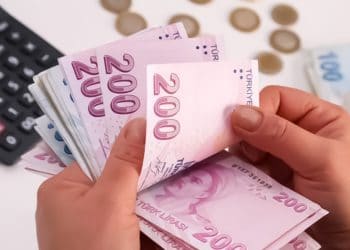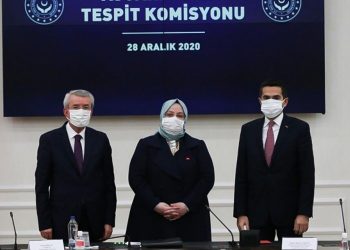by Sarah Glynn
Readers of mainstream international media might observe that nothing of note seems to have happened in any of the four parts of Kurdistan. In fact, if they bothered to look, they might find the same absence of news on most days. But what does a no-news-day actually mean for those on the ground?
Of course, the absence of foreign reports doesn’t mean that events go unrecorded. Kurdish sources are busy gathering information and publishing online. Search-engine algorithms ensure that these accounts are only seen by those who specifically seek them out, but if you do, the picture that they paint is not a quiet one.
So, what was the situation on no-news-day, Monday 30 November 2020? As so many of the Kurds’ current problems stem from the Turkish government, let’s start by looking at reports from Turkey itself. The arrest of Kurdish politicians and activists in Turkey has become so routine that it no longer makes headlines outside the country. And, with so many detentions and arrests and – often long-delayed – trials, it is not easy to keep track of what is happening. We read in Monday’s news that twelve people were detained in early morning raids in Diyarbakir, that seven people appeared in court in Ankara and one was arrested, and that a journalist was sentenced to one and a half years in prison on the basis of his social media posts. To put this in context, over 400 people (mainly connected with the Peoples’ Democratic Party – HDP) have been detained since President Erdoğan briefly raised hopes with talk of ‘judicial reform’ less than three weeks ago.
And the authorities are not content with simply locking people up. Women prisoners in the high security prison in Kocaeli announced last Friday that they were going on a rotating hunger strike to protest rights violations in the prisons and the continued isolation of Abdullah Öcalan. These resolute activists include the HDP’s former co-chair Figen Yüksekdağ, the Democratic Regions Party’s former co-chair Sebahat Tuncel, former Diyarbakır Co-Mayor Gültan Kışanak, and former HDP deputy Çağlar Demirel. On Sunday, the regime responded by raiding their cells and confiscating written materials, books, and pens. The material taken included defence statements.

A rare international report – by Michael Rubin for the US Centre for the National Interest – also observed on Sunday that Turkey is deliberately encouraging Syrian refugees in Turkey to settle in areas where they will alter the ethnic mix and dilute support for political opponents, in the same way that Turkey is attempting to force ethnic change in Syria, and now in Artsakh/Nagorno-Karabakh.
As anyone familiar with Kurdish politics would expect, none of this has stopped Kurdish resistance. As well as the resistance of the women prisoners, we can read about an HDP youth assembly in Diyarbakir – where almost 200 people discussed how to raise awareness of Öcalan’s situation – and about a public meeting in Bingöl – where Democratic Society Congress (DTK) co-chair, Leyla Güven, who herself undertook a 200-day hunger strike last year, called for Kurdish unity against Turkish aggression.
Turkey’s attacks on the Kurds also threaten their achievements, and even their existence, in both Iraq and Syria. In the Kurdistan Region of Iraq (KRI), Turkish ambitions are being actively supported by Masoud Barzani and his Kurdistan Democratic Party (KDP), who have allowed themselves to become dependent on Turkish support. To the horror of all other Kurdish parties in Iraq, who recognise this as an existential threat to Kurdish autonomy, the KDP and their Peșmerga forces are assisting the Turkish military in their attempt to crush the Kurdistan Workers’ Party (PKK) in the Qandil mountains, where they have been established for forty years. Kurdish politicians and activists (such as Leyla Güven) are working hard to facilitate a peaceful resolution and avoid an intra-Kurdish war. The Kurdish National Congress (KNK) Crisis Desk is continuing to organise diplomatic meetings; and Bafel Talabani, co-leader of the Patriotic Union of Kurdistan (PUK), the other main party in the KRI, has reiterated his party’s opposition to war with the PKK.
This conflict has been made even more dangerous by the recent agreement – orchestrated by the US and supported by the UN – for the administration and defence of the Yazidi region of Sinjar to be jointly taken over by the government of Iraq and the KDP. When Iraqi and KDP forces abandoned the Yazidis to ISIS in 2014, they were saved from utter annihilation by the PKK and the People’s Protection Units/Women’s Protection Units (YPG/YPJ). In the intervening years, their saviours have helped the Yazidis to set up their own autonomous authority and their own defence forces. Now, without consulting the Yazidis themselves, thousands of Iraqi troops and KDP Peșmerga are coming to the area to dismantle all that the Yazidis have built. This has given the diplomatic discussions added urgency, with the KNK calling for the agreement to be redrawn to take account of the will of the people of Sinjar.
From across the border in Syria, we can read accounts of both the appalling conditions in areas under Turkish occupation, and of increasing threats of a further major Turkish incursion. This is on top of persistent attacks from ISIS sleeper cells, Russian indifference to Turkey’s continuous ceasefire violations, and a blockade by the Syrian regime of the 200,000 Kurds displaced from Afrin to Shebha. The Rojava Information Centre informs us that the Afrin IDPs in Shebha have now been cut off for over a month, and lack cooking oil and diesel for heating, as well as medicines and other basic supplies.
From occupied Afrin itself, where the behaviour of the jihadi militias sponsored by Turkey has been compared to that of ISIS, we can read of disappearances, of the looting of the olive crop, and of the destruction of archaeological sites as the occupiers use drills and bulldozers to extract anything that they can sell.

Turkey continues to pour military hardware into the ‘de-escalation zone’ around Idlib, where over 10,850 military vehicles have been brought in since February. And, in the last week, they have intensified their ceasefire-defying attacks on the Kurds in Ain Issa and Tal Abyad. Military raids and heavy weapons fire are leading to fears that Erdoğan will carry out his threat of a further ground assault before Trump leaves office.
In the midst of all this, the Syrian Democratic Council has managed to complete a series of discussions across the region on how to take forward the Autonomous Administration of North East Syria. The first meeting of the follow-up committee, with 16 members representing different cities, took place on Monday. These discussions have involved some difficult diplomacy in order to keep on board strategic regional groups and traditional leaders, who may not share the more progressive politics of the Administration’s leading figures.
Meanwhile, the 4th round meeting of the Syrian Constitutional Committee is taking place in Geneva with no invitation to any representative from the Autonomous Administration.
Lastly, turning to Iran, we can see that the clampdown on human rights is unrelenting – even more so this month to prevent commemoration of the brutally-suppressed protests of a year ago. Recorded incidents in the last week include the detention of Kurdish cultural activist, writer, and language teacher, Anisa Jafari-Mehr; the shooting of two kolbars (mountain porters) by Iranian border guards (this time only wounded and not killed); and the sentencing to six-years imprisonment of Zeinab Esmaili, a member of Kurdish Mothers for Reconciliation, who was found guilty of ‘membership of Kurdish parties and disseminating propaganda against the state’.
This quiet day has contributed a terrifying audit of attacks on many fronts, but it has also demonstrated inspiring resistance from both individuals and organisations. If this assault is to end, both the attacks and the fight back need to be much better known.

















